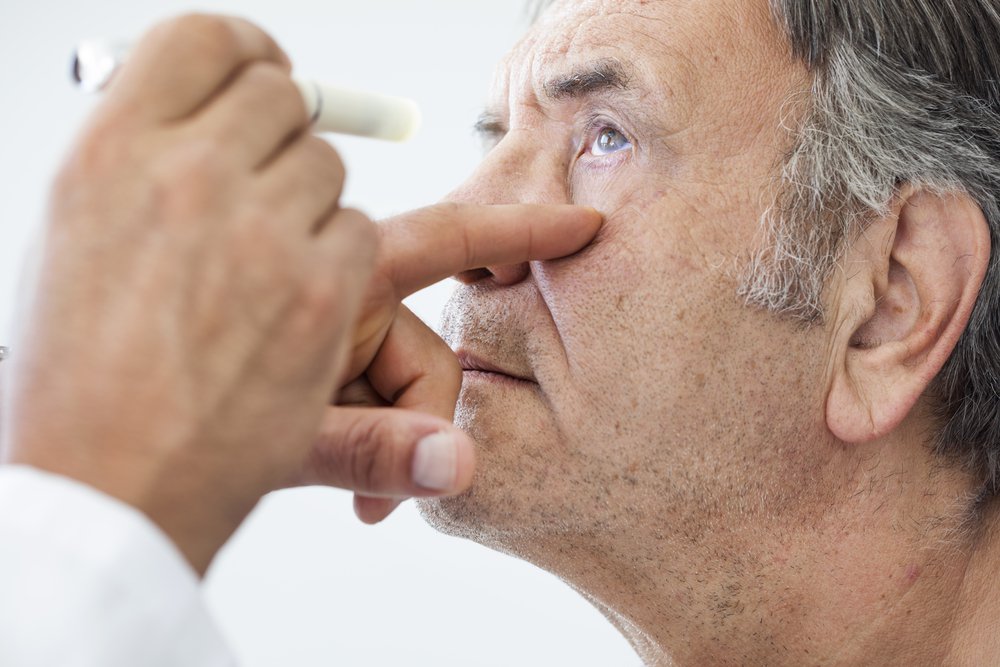Cataract surgery can eliminate double vision, reducing eye strain and headaches. Discover the reasons why you may require surgery and its numerous advantages:
Table of Contents
Who Is at Risk for Developing Cataracts
Cataracts can affect individuals of all ages, but they usually occur later in life. In rare cases, some children may be born with congenital cataracts.
Smokers are much more likely to develop cataracts than non-smokers. The harsh chemicals in tobacco smoke can cause oxidative stress to the lens in the eye. This can lead to deterioration and the eventual formation of cataracts.
What Cataract Surgery Is
Cataract surgery, also known as lens replacement, is a minimally invasive procedure with a fast-healing time and minimal downtime. It is the only way to correct cataracts.
Lens replacement is a safe, fast, and effective procedure, with most patients returning to work within a few days. The process involves removing and replacing the clouded lens with a new, artificial lens.
Why You May Need Cataract Surgery
A cataract is a condition where the normally clear lens of the eye becomes cloudy. This is like trying to look through a frosty or foggy window. The clouded vision caused by cataracts can make it challenging to perform daily tasks such as reading, driving at night, and recognizing facial expressions.
The following signs may appear with cataracts:
- Vision that appears hazy, blurred, or dull
- Worsening night vision
- Increased sensitivity to bright light and glare
- Requiring brighter light for activities such as reading
- Noticing “halos” around lights
- Needing frequent changes in eyeglasses or contact lens prescription
- Colors appearing faded or yellowed
- Double vision in one eye
A cataract in its early stages may not cause any noticeable issues, as the cloudiness only affects a small part of the lens. But as it grows and covers more of the lens, it can impact your vision.
The reduced light reaching the retina leads to blurry and dull vision. Cataracts can’t spread from one eye to the other, but it is common for individuals to develop cataracts in both eyes over time.
Wearing glasses or increasing lighting can help you see better at first. If your vision continues to deteriorate, cataract surgery may be necessary. Here are some of the ways cataract surgery can help:
Color Perception
After surgery, colors can appear more vibrant, allowing you to enjoy the world around you. Imagine seeing the beautiful colors of a sunset or the deep green of a forest with clarity and vibrance like never before.
Driving
The risk of car accidents decreases for patients who undergo cataract surgery. Cataract surgery can reduce glare and halos around lights, making it easier to see in low-light conditions and reducing eye strain. If you’ve been experiencing difficulty seeing while driving at night, cataract surgery can help reduce these symptoms and make you a safer driver.
Independence
Lens replacement surgery can improve one’s independence and ability to perform everyday tasks. With clearer vision, individuals can cook, shop, and do yardwork easily without relying on others for assistance.
Surgery can also help individuals climb stairs more safely, reducing the risk of falls and injuries. With improved vision, patients can read labels accurately and take their medications with less difficulty.
What To Expect After the Surgery
During the first few days after lens replacement surgery, temporary side effects such as blurred vision, light sensitivity, dryness, itching, burning, and redness may occur. These effects are usually temporary and should resolve within a few days.
Your eye doctor will prescribe eye drops or medications to manage any potential inflammation, infection, or increased eye pressure. Your doctor may recommend wearing an eye shield while sleeping to protect the surgical site.
Regular follow-up appointments will be scheduled to monitor your recovery progress, the first being a month after the procedure. At this appointment, a new prescription for eyeglasses may be given based on the results of an eye exam.
Prevent Future Problems
Cataracts typically develop slowly over time. Early detection and treatment can help preserve your vision. Regular eye exams can help detect cataracts early so that you can get timely treatment.
Cataracts are a primary cause of blindness. If left untreated, cataracts will gradually obstruct light from reaching the eye. If you have untreated cataracts, inflammation in the eye can increase, and if left too long, cataracts can become harder to treat, eventually leading to vision loss.
To avoid these additional issues, consult your eye doctor promptly when you experience any symptoms of cataracts to find out if cataract surgery will benefit you.
Related posts
When was the first presidential election in the US?
The election process in the world’s most powerful nation, the US, has come a long way. Various amendments have been made to the Constitution that allowed black men, white women and other disadvantaged groups to participate in the elections. Further amendments during the 60s and…
Tips & Trick For Healthy Glowing Skin
Lorem ipsum dolor sit amet, consectetur adipiscing elit. Nam laoreet, nunc et accumsan cursus, neque eros sodales lectus, in fermentum libero dui eu lacus. Nam lobortis facilisis sapien non aliquet. Aenean ligula urna, vehicula placerat sodales vel, tempor et orci. Donec molestie metus a sagittis…
My Fight With Depression. Concussions
Lorem ipsum dolor sit amet, consectetur adipiscing elit. Nam laoreet, nunc et accumsan cursus, neque eros sodales lectus, in fermentum libero dui eu lacus. Nam lobortis facilisis sapien non aliquet. Aenean ligula urna, vehicula placerat sodales vel, tempor et orci. Donec molestie metus a sagittis…
Top 10 most visited tourist places in the world
Lorem ipsum dolor sit amet, consectetur adipiscing elit. Nam laoreet, nunc et accumsan cursus, neque eros sodales lectus, in fermentum libero dui eu lacus. Nam lobortis facilisis sapien non aliquet. Aenean ligula urna, vehicula placerat sodales vel, tempor et orci. Donec molestie metus a sagittis…
How Digital Health Technology Is Beneficial?
Digital health revolves around the usage of diverse technological platforms including mobile health, teen health, configurable remote patient monitoring, etc to improve the connection between the patients and the doctors. Across the healthcare system, the horizon and scope of digital health have helped create opportunities…
How Latest Farmtrac Tractors are Improving Farming in India?
India mostly relies on farming, and a large part of the population depends on it for their livelihoods. Recently, there’s been a big shift towards using modern farming techniques and machinery to make farming more productive and efficient. A good example of this is the…
Dispelling Myths: Demystifying Rx Waste and Expiration Dates – WasteX Pharmaceutical Waste Disposal Separates Fact from Fiction
The specter of “expired” medication looms large, conjuring images of potent chemicals wreaking havoc on water sources and ecosystems. But before you panic toss that bottle of pills, let’s delve into the truth about pharmaceutical waste and expiration dates, separating fact from fiction. At WasteX…
Sustainable Living in Memphis: Green Initiatives and Eco-Friendly Hotspots
Memphis, a city known for its rich cultural heritage and vibrant atmosphere, is increasingly becoming a hub for sustainable living. As environmental awareness continues to grow, residents and businesses in Memphis are embracing green initiatives and fostering eco-friendly practices. Let’s explore the city’s commitment to…
Today's pick
Hot topics
Stay connected
Meet the Author

Gillion is a multi-concept WordPress theme that lets you create blog, magazine, news, review websites. With clean and functional design and lots of useful features theme will deliver amazing user experience to your clients and readers.
Learn moreCategories
- Animals (7)
- Apps & Softwares (8)
- Automotive (8)
- Beauty (8)
- Business (141)
- Cars (12)
- Cartoon (3)
- Cook (4)
- Cooking (1)
- Design (8)
- Economy (6)
- EDUCATION (25)
- Entertainment (16)
- Fashion (23)
- Fitness (2)
- Food (16)
- Gaming (51)
- Guide (20)
- Health (119)
- Home (52)
- Home improvement (12)
- Interior (3)
- Law (16)
- Life (1)
- LifeStyle (99)
- Marketing (5)
- Motivation (9)
- Movie (6)
- Movies (1)
- Music (3)
- News (8)
- Painting Art (1)
- People (15)
- Photography (7)
- Review (113)
- Services (7)
- Social Media (6)
- Sport (9)
- Sports (12)
- Style (10)
- Swimming (1)
- Tech (125)
- Travel (26)
- Uncategorized (17)
- Vape (5)
- Western (3)
- World (2)










